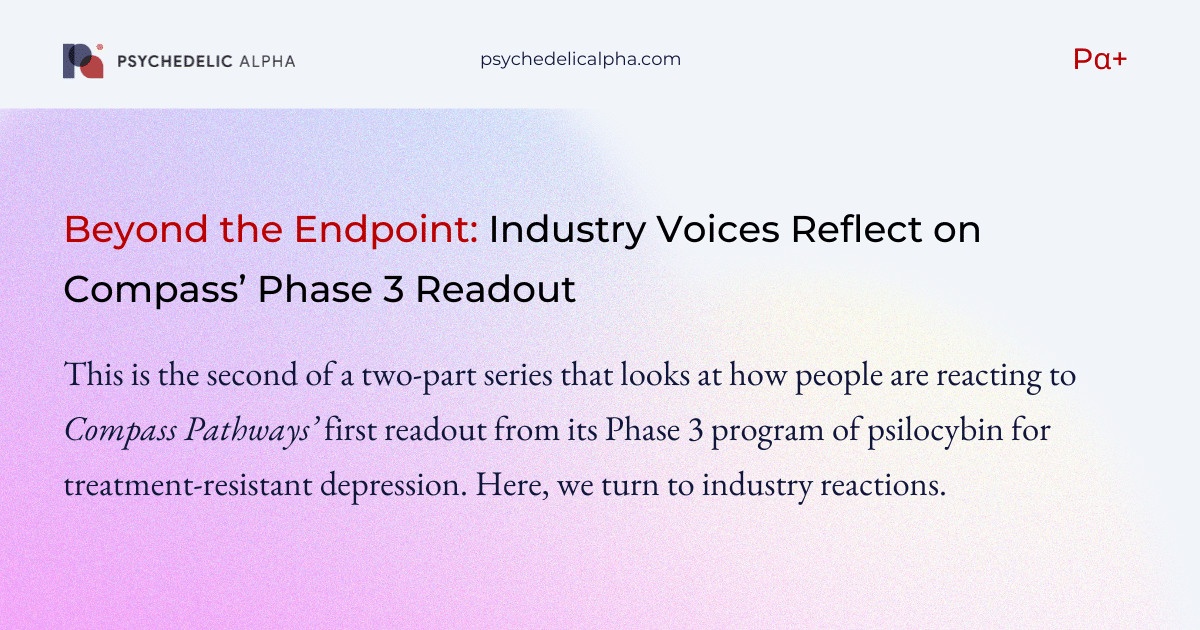Perhaps the most prominent reaction on the ‘industry’ side of the equation was the precipitous drop in Compass’ share price, which roughly halved on Monday upon the announcement of the topline data. At the time of writing, shares are down over 54% on the year.
Despite that substantial bearish signal, many industry-type voices, particularly within the psychedelics arena, emphasised the success of Compass meeting its primary endpoint, especially in such a challenging patient population, and the positive safety signal.
With that in mind, here we focus on other substantive themes of discussion…
Underwhelming Efficacy? Pressure Mounts on Long-Term Follow-Up, Two-Dose Data
Outside of the psychedelics bubble, some investors we spoke to felt the delta was underwhelming, believing that a week 6 MADRS delta between the active and placebo arm in the region of 4+ would have been much more reassuring.
All of those that we spoke with told us that this does not mean the drug lacks commercial viability or relevance. Rather, it means that it’s still very much a ‘show me’ scenario for Compass, with investors watching the 26-week data from COMP005, and the multi-dose data from COMP006, incredibly closely. Put simply, Compass needs to demonstrate that it has an edge in terms of durability, or that two doses significantly improve the efficacy profile, in order to prove out the commercial case for COMP360. (Ideally, it will do a bit of both.)
Still, RBC Capital Markets’ Leonid Timashev believes the data derisks the program and provides a line of sight to $1.1bn in annual U.S. sales, a figure that Spravato has achieved.
While not exactly an ‘industry’ figure, Stanford researcher Martijn Arns pointed out that the two pivotal trials of TMS in medication-resistant depression printed a 2.1-2.8 point MADRS difference at week 6. “TMS is FDA approved, widely used and clinically very effective!”, he wrote on X.
Evecxia Therapeutics CEO Jacob Jacobsen, meanwhile, drew parallels to “earlier hype/reality cycles in psychopharmacology”, citing those seen in excitement around monoamine oxidase inhibitors, SSRIs, ketamine and esketamine, and deep brain stimulation…


